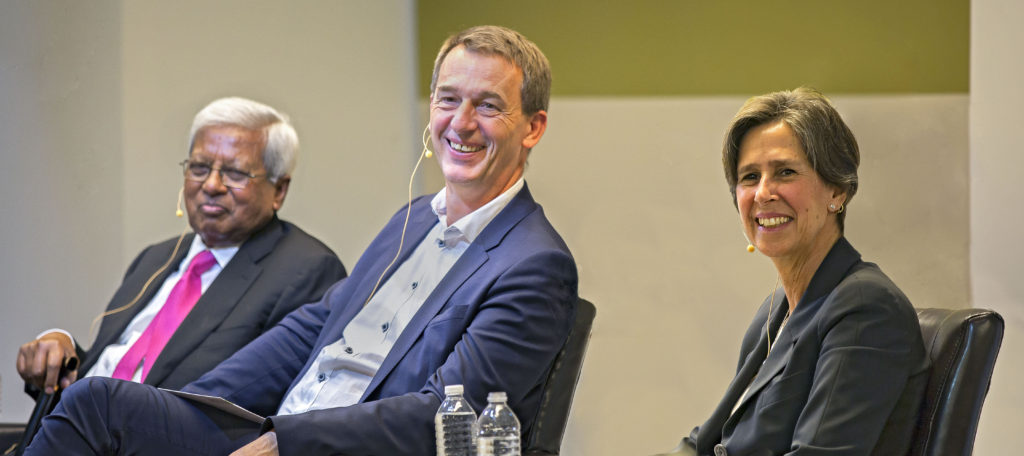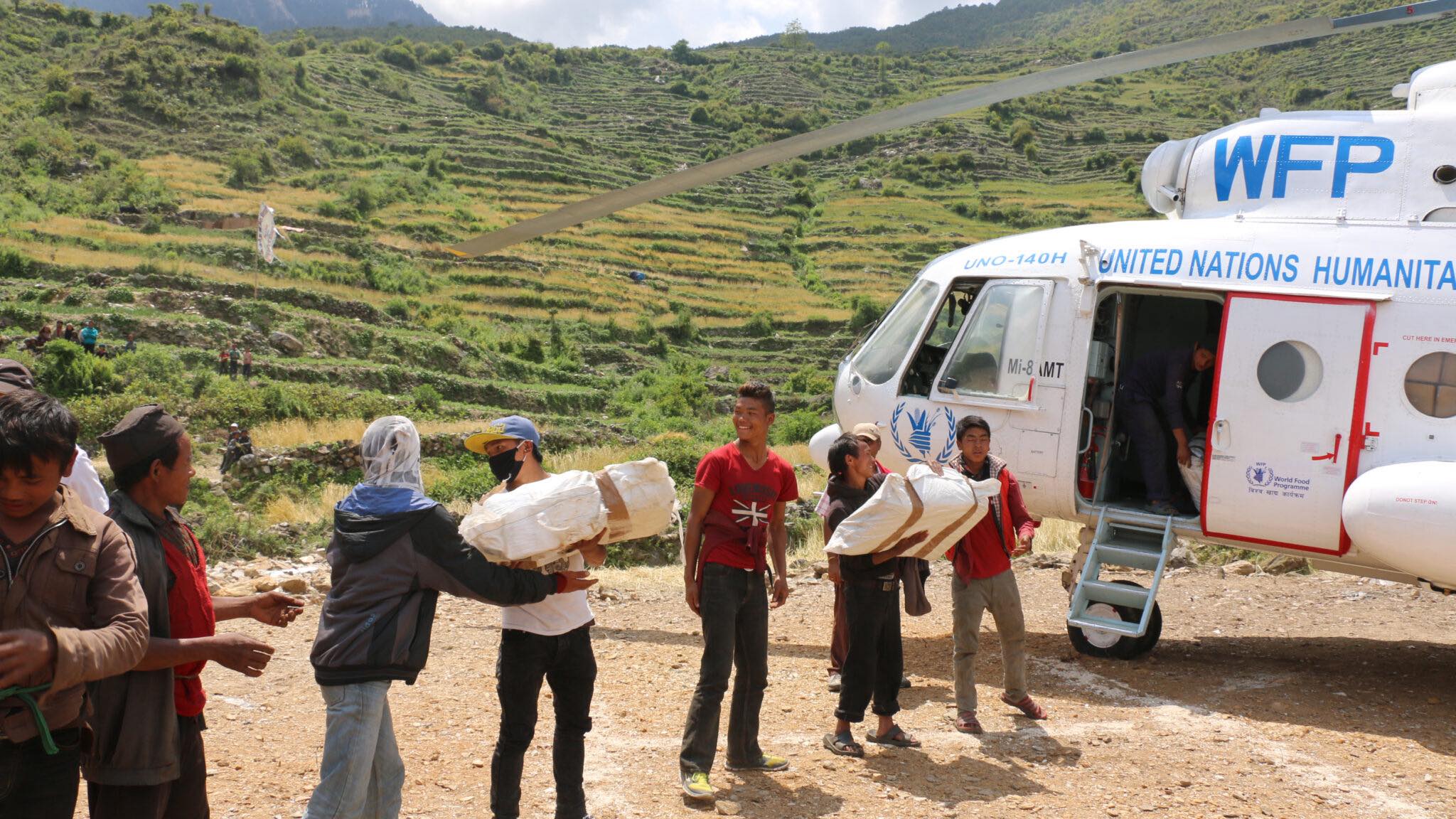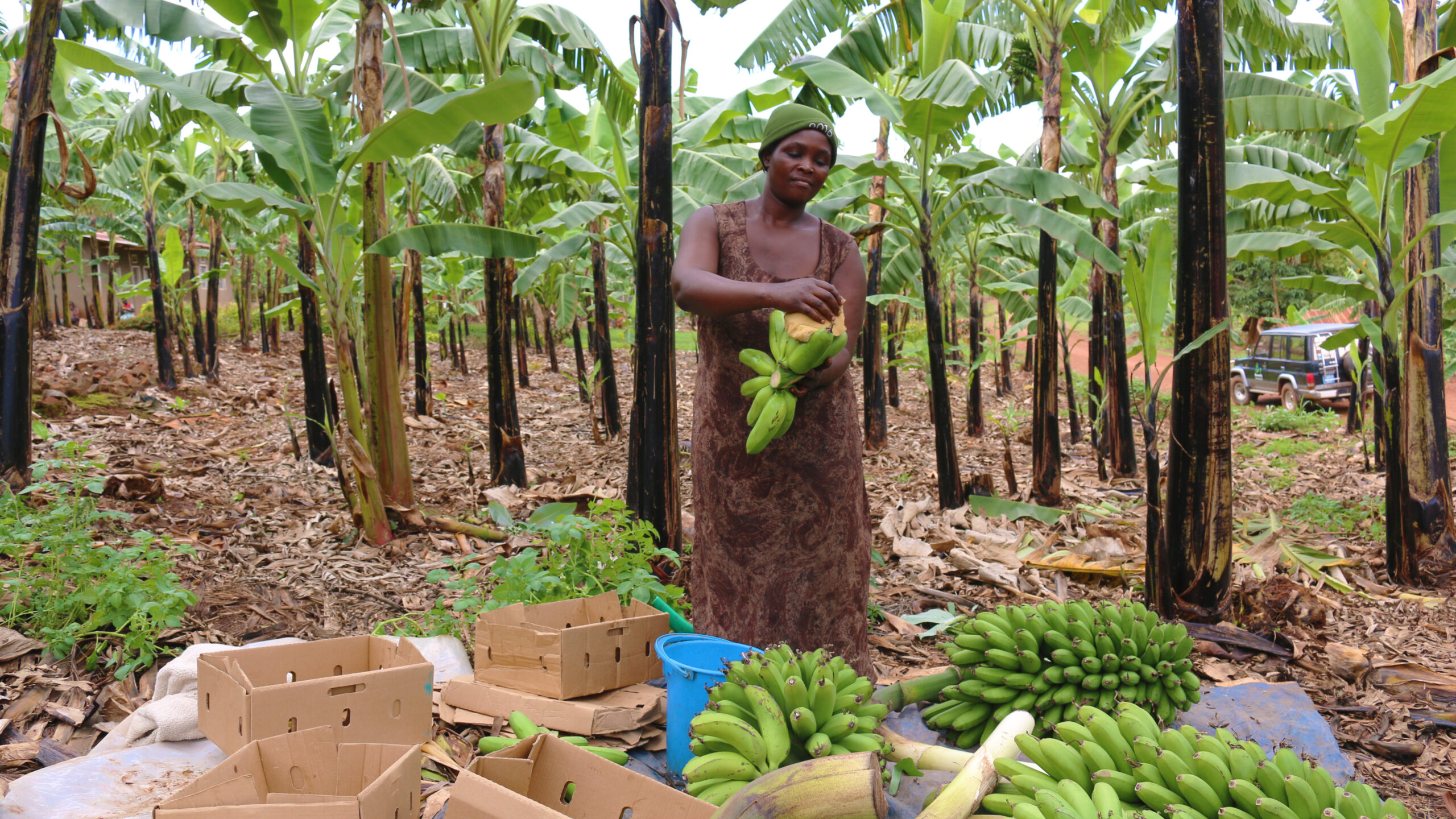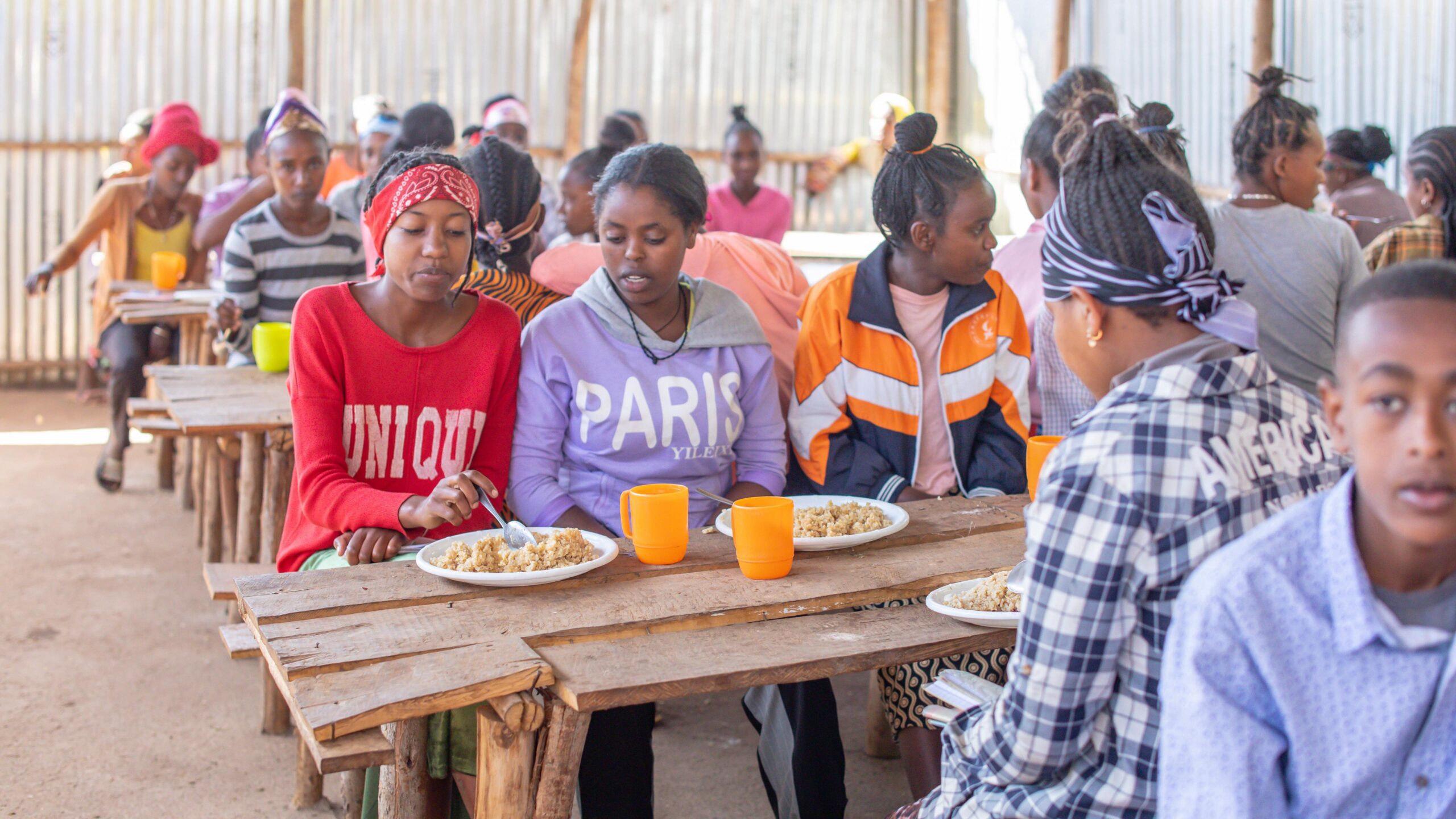Global NGO leaders gathered to discuss how to accelerate and sustain progress to end hunger and undernutrition by 2025 during a Compact2025 panel discussion at IFPRI Oct. 6. The event featured six members of the Compact2025 Leadership Council.
IFPRI Director General Shenggen Fan opened the event with an overview of Compact2025’s main roles—to engage at the country level, stimulate knowledge and innovation, and support other initiatives while working to address hunger and undernutrition.
In the keynote address, Kanayo Nwanze, President of the International Fund for Agricultural Development (IFAD), noted the “cruel paradox” that many families that feed the world from small farms are the ones who go hungry. He raised key questions for national governments and development organizations to consider as they seek to scale up interventions to end hunger: “Are we paying enough attention to smallholders? Are we engaging them in finding solutions to end hunger and undernutrition? And if not, why not?” Noting that support for smallholders lays the foundation for a world free from hunger, Nwanze proposed four value propositions for accelerating progress toward this goal: 1) Build inclusive “public-private-producer partnerships” that involve smallholders; 2) Invest in rural infrastructure including storage facilities, roads, energy, and social services; 3) Create inclusive policies from community to national levels to enable vulnerable groups to participate; 4) Improve measurement of results to account not just for higher yields but also for reduced poverty, improved nutrition, and healthy ecosystems.
Following the keynote, three panelists provided their perspectives in a discussion moderated by Catherine Bertini, Professor of Public Administration and International Affairs in the Maxwell School of Citizenship and Public Affairs at Syracuse University.
Fazle Hasan Abed, Founder and Chairperson of BRAC, shared the experience of one of the world’s largest NGOs in developing a multisectoral program targeted to the ultra-poor in Bangladesh. It has now lifted 1.5 million families out of extreme poverty and been piloted in 10 countries around the world. “It is the poor themselves who do the hard work of getting themselves out of poverty,” Abed said. “We want to create the enabling conditions for them to do so.” The experience of BRAC has shown that these enabling conditions include a comprehensive set of services including asset transfers, stipends, childhood education, and training and coaching for participants.
Wolfgang Jamann, Secretary General and CEO of CARE International encouraged policymakers and development practitioners to use the acronym “SUPER”: Sustainable (ecologically and socially); Productive and Profitable; Equitable; and Resilient. He emphasized that scaled-up investment in nutrition is required if we are to end hunger and undernutrition by 2025. “Nutrition is not just to be addressed through nutrition-specific interventions but through much more holistic and comprehensive approaches … and those investments around nutrition must target those populations who are most in need,” he said.
Kathy Spahn, President and CEO of Helen Keller International, called for shifting the lens from the costs of malnutrition to the benefits of investing in nutrition. “Just as hunger and undernutrition are markers of poverty, ending hunger and undernutrition are markers and makers of prosperity,” she said. Spahn emphasized the need to not only get more money for nutrition, but also to get more nutrition for the money that is invested, through high quality national action plans, investments in multisectoral interventions using existing resources, prioritization of at-risk communities, and inclusive partnerships and engagement with the private sector. She also called for investment in monitoring and evaluation, particularly for indicators that work across sectors and for measuring whether services are reaching those who need them most at the right time.
All three panelists noted that major agreements and global events including the Sustainable Development Goals, the Paris climate change agreement, and the Second International Conference on Nutrition have created a window of opportunity. The time is ripe for these agreements to be put into action and to take advantage of the current momentum to create a world free from hunger and undernutrition.
Laura Zseleczky is a Research Analyst and Chris Rue a Senior Research Analyst in IFPRI’s Director General’s Office.
For more information on the event, click here. For a video of the event, click here. This post originally appeared on the Compact2025 site.







